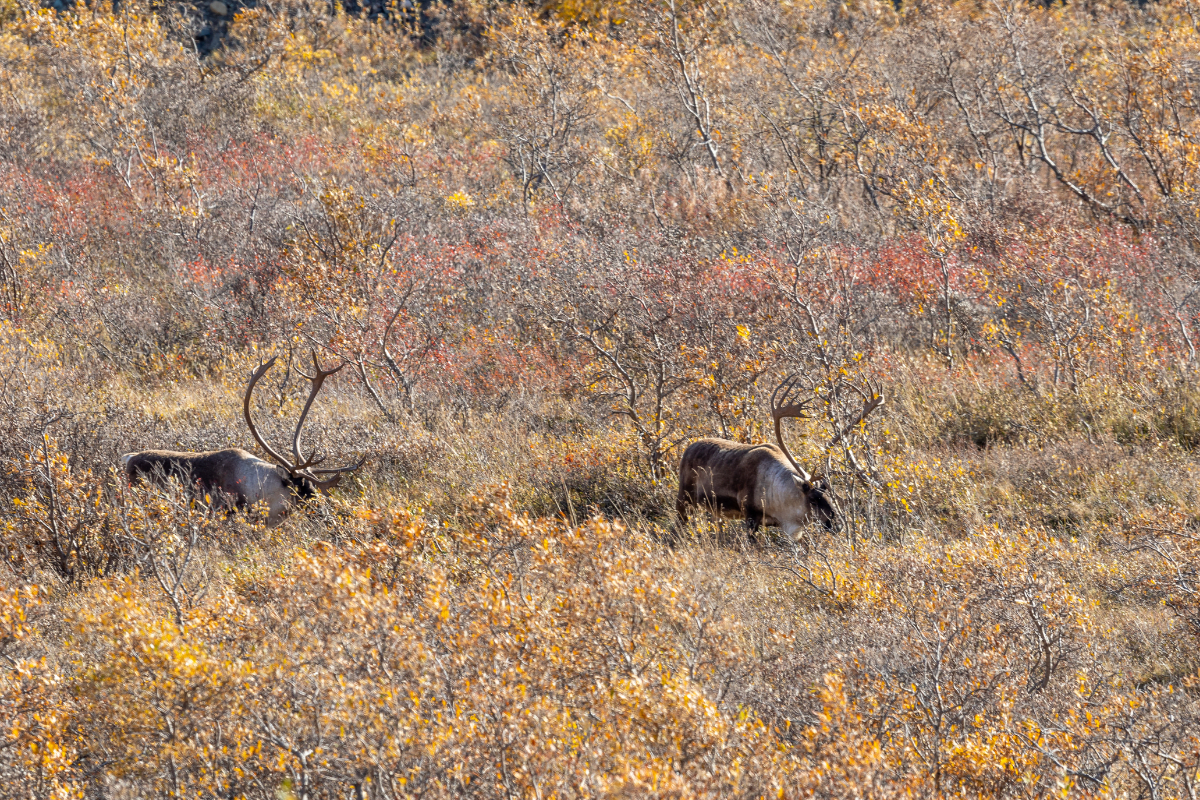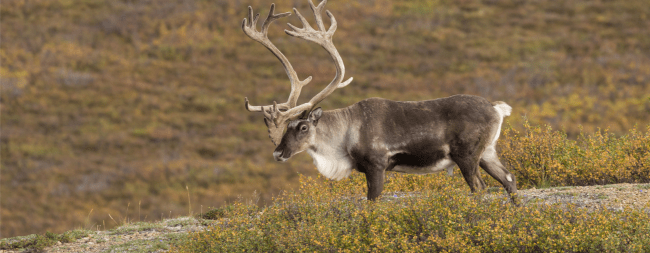Across northern Canada, Veterinarians Without Borders (VWB) is collaborating with remote communities, responding to their invitations to address animal care needs. Together with community representatives, we develop comprehensive plans to enhance local capacity by organizing temporary veterinary clinics staffed by dedicated volunteers. Our mission is to establish a sustainable framework, empowering communities to take charge of their animal health needs for long-term, community-driven impact.
With the help of a bursary from Veterinarians Without Borders North America's Access to Care awards program, Veterinary Medicine Master's student and veterinary technician, Jessie Olson, recently embarked on a mission that utilizes both scientific research and traditional Indigenous knowledge to better understand caribou health issues in northern Canada. Under the supervision of Dr. Frank Van der Meer, from the Faculty of Veterinary Medicine at the University of Calgary, and partnering with the Kutz Research Group, Olson's project aims to understand what viruses are circulating throughout Canada’s northern caribou herds using a multidisciplinary framework.
A collaborative effort for caribou conservation
This project is a highly collaborative project, with academia, government and northern communities coming together to address concerns of caribou health. The core of Olson's work is grounded in, and expands on, an ongoing community-based wildlife health surveillance program, which works with northern hunters to gather samples and data from caribou harvested for subsistence purposes. This unique program enables critical data collection on caribou health that would otherwise not be available. "It's about creating a bridge between the scientific community and the Indigenous peoples who have lived with these animals for centuries," Olson explains.
A pivotal meeting in Yellowknife, NT, in October 2023, marked the beginning of this collaborative journey in Olson's project. Representatives from various northern communities, academia, and government came together to share their insights and concerns about caribou health. "Our aim was to not only identify key health indicators and discuss caribou health but also to refine our sampling methods to respect traditional harvesting practices," said Olson. Through these meetings and ongoing discussions, harvesters and community members will be directly involved in the development of caribou health indicators and sampling programs.
Olson, who also has skills in graphic recording, visually captured the discussions and concepts shared during the workshops. "It was important for us to visually document the collective wisdom of the community members, researchers and hunters," says Olson, highlighting the importance of visual aids in bridging communication gaps.

Tackling caribou health challenges
The scientific aspect of Olson's project investigates viral pathogens in caribou populations. This is a largely unexplored facet of caribou in Canada’s Arctic. Through molecular-based methods and the creation of caribou specific diagnostic tests the team aims to identify and understand what viruses may be circulating caribou populations. "Researching the viral diversity of caribou is critical for our understanding of the factors affecting caribou health and population dynamics," Olson states, underlining the significance of their research.
Supporting education and research
Growing up in the Northwest Territories inspired Olson to become a Veterinary Technician, as veterinary care in the Northwest Territories is limited and inaccessible to most communities. The core of her career in veterinary medicine has been assisting in pioneering northern Arctic community programs, addressing animal welfare, disease education, and providing veterinary medical access in remote communities. Throughout these endeavors, she became aware of the interconnectedness of cultural ways of life, domestic animal health, and wildlife health in remote communities in Canada’s North. The transfer of skills as a veterinary technician to a biologist has been beneficial in her academic pursuits.
“I'm familiar with many species, ecosystems, and respectful northern practices, and have a broad array of laboratory and diagnostic skill sets that will help me with this research project," she added. Having started coursework in September 2023, Olson is focused on subjects that directly complement her research, including biostatistics, professional skills, molecular epidemiology, and wildlife health and ecology. "The scholarship from Veterinarians Without Borders has helped greatly to support my educational and research pursuits," Olson gratefully acknowledges. "It's empowering me to bring back my new skillset and knowledge back to the North."
The overarching aim of this research is to deepen our understanding of cumulative stressors affecting caribou and promote sustainable monitoring efforts led by northern communities. The viral diagnostic techniques explored in Olson’s research aims to extend beyond the scope of this project offering future insights and future testing methods for monitoring viruses in caribou in Canada’s Arctic, as well as in other circumpolar regions.
Learn more about the Access to Care Awards program and opportunities to apply.





